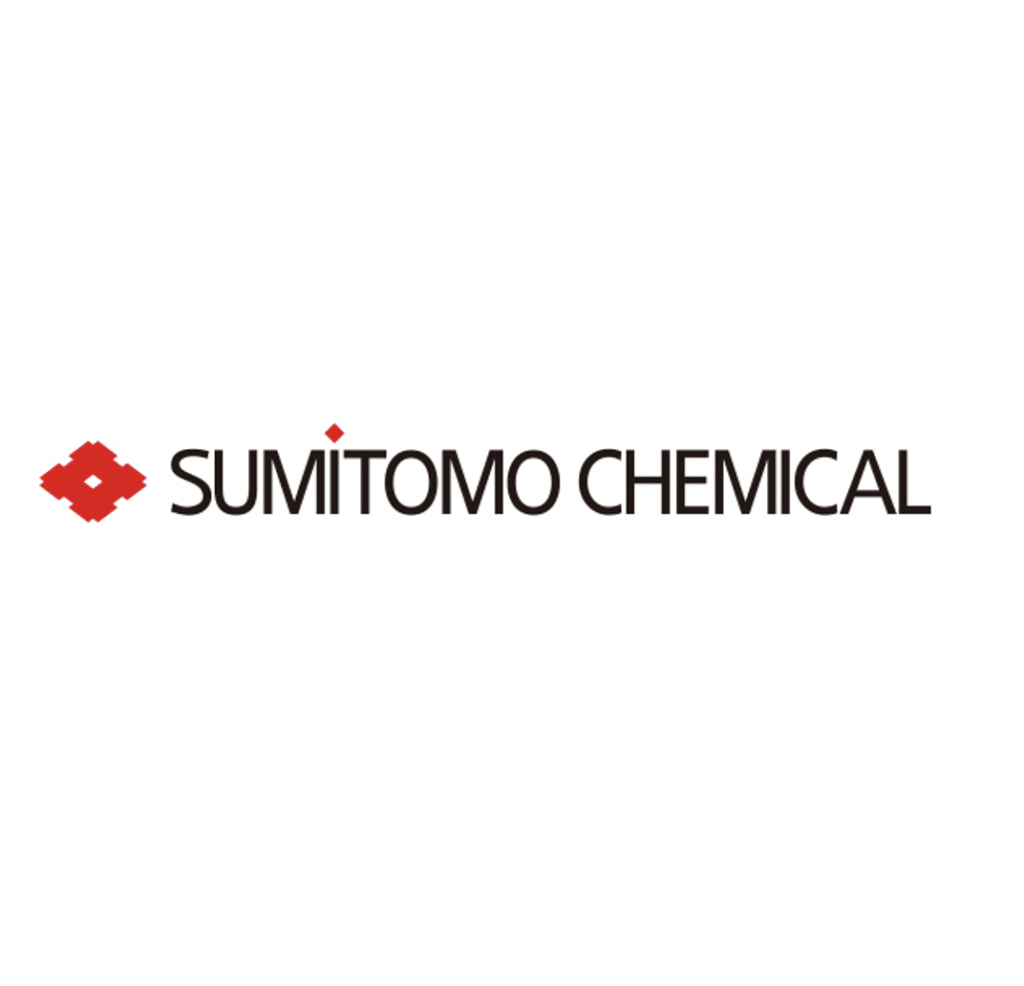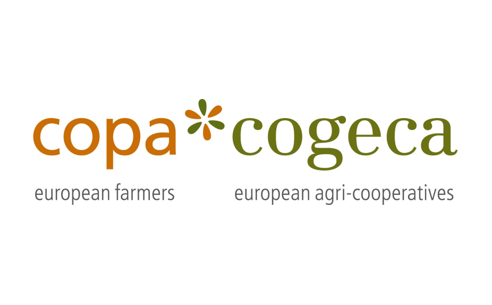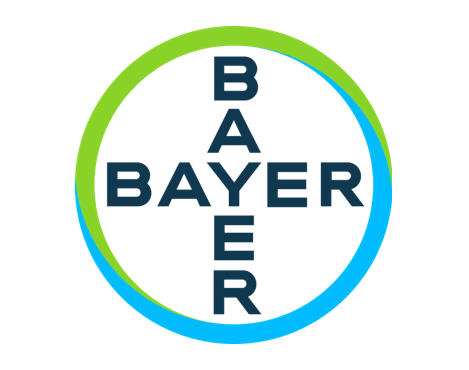Background
The European Chemical Industry Council (Cefic) is an industry membership organization that promotes the interests of European chemical businesses. Cefic’s self-proclaimed “powerful network” consists of 670 members and affiliates within the chemical business community.1“Membership,” European Chemical Industry Council. Archived March 1, 2021. Archived URL: https://archive.ph/r9Y3F
Members include Bayer, BASF and Sumitomo, as well as chemicals-focused subsidiaries of oil and gas companies including Chevron, ExxonMobil and Eni’s Versalis. Cefic also forms partnerships with industry associations representing the chemical industry.2“Membership,” European Chemical Industry Council. Archived March 1, 2021. Archived URL: https://archive.ph/r9Y3F 3“List of Corporate Members (ACOM),” European Chemical Industry Council, November 2021. Archived November 11, 2021. Archive URL: https://archive.ph/Y5WxS
In 2017, affordable food campaign group foodwatch said that Cefic had the largest annual lobbying budget in Brussels at €12 million. In 2020, Cefic remained among the 10 top trade associations in Brussels, spending between €9,000,000 – €9,249,999 on lobbying that year.4“Pesticide exports,” foodwatch. Archived November 11, 2021. Archive URL: https://archive.ph/PCMfO 5“European Chemical Industry Council,” European Transparency Register. Archived November 11, 2021. Archive URL: https://archive.ph/nGXuo
In October 2020, the Cefic General Assembly elected Martin Brudermüller, CEO of BASF, as its new president.6“BASF CEO Dr. Martin Brudermüller Elected New President Of Cefic,” European Chemical Industry Council, October 15, 2020. Archived November 11, 2021. Archive URL: https://archive.ph/8okUr
Stance on Climate Change
Marco Mensink, Cefic director general, has said that Cefic sees the transition to a “climate neutral and circular economy” as a “key driver of European jobs and economic growth, needed to kick start the EU economy after the COVID19 pandemic.”7“Achieving Climate Neutrality By 2050 Requires A System Change – Cefic Issues Position On EU Climate Law,” European Chemical Industry Council. Archived 25 November 2021. Archive URL: https://archive.ph/wip/fOOEr
In a 2019 document outlining the group’s goals and expectations for the year 2050, Cefic wrote that as climate change continues to “transform our planet,” the group envisions a future in which Europe is “close to achieving net-zero greenhouse gas emissions,” and where “virgin fossil carbon is used selectively and productively.”8“A journey into the Future of Europe with the European Chemical Industry,” European Chemical Industry Council, June 2019. Archived version on file at DeSmog. Archive URL: https://archive.ph/aomwx
It continues:
“The European chemical industry has achieved a significant reduction of its own greenhouse gas (GHG) emissions and adapted to a changing climate. It plays a pivotal role in providing technologically and economically feasible pathways toward achieving Europe’s ambitious GHG emissions reduction goals.”9“A journey into the Future of Europe with the European Chemical Industry,” European Chemical Industry Council, June 2019. Archived version on file at DeSmog. Archive URL: https://archive.ph/aomwx
In a Cefic-sponsored article that appeared in Politico Europe in November 2020, Mensink wrote that “a future where climate-neutrality is achieved by 2050” will be “created by chemistry,” and that the group supported the European Green Deal “early.” Mensink also argued that Europe needs “home-grown ‘Green Deal chemicals’” and a plan for its chemical industry because it is “crucial to ensure Europe doesn’t outsource its Green Deal to other regions.”10Marco Mensink. “Can the Chemicals Strategy for Sustainability make the Green Deal a reality?” Politico Europe, November 2, 2020. Archived October 22, 2021. Archive URL: https://archive.ph/CZqHf
In remarks to the European Economic and Social Committee, Charles-Henri Robert – Cefic’s executive director for climate change and energy – said that “the chemical industry can make a big contribution to the EU Long-Term Climate Goals.”11“The Chemical Industry Can Make A Big Contribution To The EU Long-Term Climate Goals, Says Charles-Henri Robert, Cefic Executive Director Climate Change And Energy,” European Chemical Industry Council. Archived November 11, 2021. Archive URL: https://archive.ph/RoF68
Robert said that the European chemical industry intends to actively contribute to Europe’s low carbon goals by being the “key innovation provider for many current and future low-carbon solutions,” and that the manufacturing of “enabling chemicals” for low carbon technologies “can be resource and energy-intensive.”12“The Chemical Industry Can Make A Big Contribution To The EU Long-Term Climate Goals, Says Charles-Henri Robert, Cefic Executive Director Climate Change And Energy,” European Chemical Industry Council. Archived November 11, 2021. Archive URL: https://archive.ph/RoF68
He continued, “As innovative chemistry is the cornerstone in providing materials for the clean energy transition, it is crucial to understand the chemical industry’s pathways to emissions reductions are closely linked to the decarbonisation of the energy sector. This is because, in the future, we will need more energy to further reduce our emissions.”13“The Chemical Industry Can Make A Big Contribution To The EU Long-Term Climate Goals, Says Charles-Henri Robert, Cefic Executive Director Climate Change And Energy,” European Chemical Industry Council. Archived November 11, 2021. Archive URL: https://archive.ph/RoF68
Robert also claimed that in the past 25 years the industry has decreased its emissions by 60 percent “through product and operational innovations.” He called for a “coherent regulatory framework – encompassing climate, energy, industrial, trade and environmental policies.”14“The Chemical Industry Can Make A Big Contribution To The EU Long-Term Climate Goals, Says Charles-Henri Robert, Cefic Executive Director Climate Change And Energy,” European Chemical Industry Council. Archived November 11, 2021. Archive URL: https://archive.ph/RoF68
In a sponsored message in the Brussels Playbook newsletter by Politico Europe, Cefic promoted its 2019 mid-century vision document, writing that it was “exploring” how the European chemical industry could “contribute to the circular economy,” namely by using “disruptive technologies that can support this transformation such as artificial photosynthesis as well as hydrogen and fuel cells, while providing good jobs for all.”15“POLITICO Brussels Playbook, presented by Cefic: Italian government churn — French commissioner pick — Boris vs. MPs”, Politico Europe, August 29, 2021. Archived 25 November 2021, Archive: https://archive.ph/wip/MTfWh
A shortened version of Cefic’s 2050 vision document headlined “How will the chemical industry contribute to the circular economy?” appeared in a sponsored post on Politico Europe, in which Cefic CEO Martin Brudermüller wrote that transitioning to a circular economy would “contribute to addressing our global resource challenge, reduce greenhouse gas emissions through better use and reuse of the materials that already exist in the economy,” and that the European chemical industry “sees itself at the center of the transition and of Europe’s circular economy.”16Martin Brudermüller. “How will the chemical industry contribute to the circular economy?,” Politico Europe, November 26, 2021. Archived February 7, 2021. Archive URL: https://archive.ph/ydTnW
Since 2016, Cefic has sponsored editions of Politico Europe’s “Brussels Playbook” newsletter, allowing the group to insert sponsored messages into the newsletter content.17Hans Von Der Burchard, “POLITICO Pro’s Morning Trade, presented by CEFIC: TTIP’s ‘last chance’ nears — Parliament pushes on China,” Politico Europe, April 11, 2016. Archived December 3, 2020. Archive URL: https://archive.ph/pQPPi
In a June 2019 edition of Brussels Playbook, Cefic wrote a targeted message to the European Commission regarding its chemical industry policies: “Dear European Commission, Europe needs a dedicated industrial policy for a sustainable, innovative and growing European chemical industry. Chemicals are at the heart of every strategic European value chain. A Green Deal for Europe needs to benefit Europe and its industry. The opportunities are huge.”18Florian Eder. “POLITICO Brussels Playbook, presented by Cefic: No Trump for Warsaw — Battle for Brandenburg — Save the saunas,” Politico Europe, August 30, 2019. Archived November 11, 2021. Archive URL: https://archive.ph/bAsKX
In response to the release of the European Commission’s proposal for an EU Climate Law, Mensink said that the proposal was the “start of an important journey” for the chemical sector, which needed to undergo a “deep transformation” within “only one or two investment cycles.” Mensink also said the industry was expecting Europe to “become a global innovation hub and a hotspot for investments into breakthrough climate-neutral and circular technologies.”19“How can Europe’s Chemical Industry help deliver on the Green Deal?,” Cefic, Archived 25 November, 2021 Archive URL: https://archive.ph/wip/Vm1Ps
A report from the climate thinktank InfluenceMap released in 2021 stated that, among other heavy industry trade groups, the European Chemical Industry Council (Cefic) remained “a significant blockage to more ambitious regulations targeting direct industrial GHG emissions” at the EU level. The report noted, however, that Cefic had undergone a “significant evolution” in other policy areas relating to climate change, for example through its support for policy on efficient home heating.20“Industry Associations and European Climate Ambition: An InfluenceMap Report,” InfluenceMap, July, 2021. Archived .pdf on file at DeSmog.
Chemicals and power sources
Cefic has contributed to policies within the EU Green Deal which push for increasing sustainability and decarbonization across sectors, including the new European Chemicals Strategy for Sustainability and the Industrial Strategy.21“Chemicals strategy,” European Commission. Archived 25 November 2021, Archive URL: https://archive.ph/wip/8ipmF 22“European industrial strategy,” European Commission. Archived 25 November 2021, Archive URL: https://archive.ph/52L9c
Cefic is also advocating for the development of a clean hydrogen economy. Regarding “accelerating” Europe’s hydrogen economy, Cefic has said that Europe “needs a Hydrogen Strategy that will scale-up the production and use of climate-friendly hydrogen” and insisted on the European Commission’s need to accelerate the deployment of a clean hydrogen economy. 23“Accelerating Europe’s Hydrogen Economy,” European Chemical Industry Council, Archived November 11, 2021. Archive URL: https://archive.ph/s52G7
According to Cefic, the chemical industry is both a high producer and consumer of hydrogen, which is currently most commonly produced using natural gas. Cefic indicated in 2019 that it expected hydrogen to “play a pivotal role in reducing the carbon footprint of Europe’s energy and feedstock supply within the transition to climate neutrality” and that the future of the European chemical industry will be “closely intertwined with the development of a hydrogen economy.”24“Cefic Vision on Hydrogen,” European Chemical Industry Council, 2019. Archived July 28, 2021. Archive URL: https://archive.ph/1P03B. Archived version on file at DeSmog.
The European Environmental Bureau, a network of environmental citizens’ organizations in Europe, has warned that the EU’s strategy to boost the production of hydrogen risks locking Europe into “burning fossil gas for generations” if the new Hydrogen Strategy is not fully based on sustainability criteria.25“Europe’s hydrogen strategy ‘a gift to fossil fuel companies’ – NGO response,” European Environmental Bureau, July 8, 2020. Archived November 10, 2021. Archive URL: https://archive.ph/grhdj
As of November 2021, Cefic president Martin Brudemuller was also the CEO of BASF.26“Martin Brudemuller,” LinkedIn. Accessed November 30, 2021. Archived .pdf on file at DeSmog.
When asked by Politico for a piece sponsored by BASF whether EU policies with climate implications for the agriculture sector, including the European Green Deal and the Farm-to-Fork Strategy, would threaten BASF’s crop protection business, Brudermüller said that the groups want to help transform European agriculture using innovation by “actively reducing greenhouse gas emissions, protecting biodiversity and minimizing the use of natural resources” but added that the success of those goals would depend on “realistic targets that are based on scientific evidence.”27Martin Brudermüller, “Success of the EU Green Deal will depend on tech,” Politico Europe, November 16, 2020. Archived October 23, 2021. Archive link: https://archive.ph/5jrsY
Regarding solutions within the agriculture sector that could help the industry adapt to climate change, Brudermüller said that “innovative seed breeding is needed to develop crops that are resilient to climate change” and that achieving sustainable farming would only be possible if “policymaking and regulatory requirements support the necessary levels of investment” to “increase innovation in biological and chemical plant protection products with more sustainable profiles.”28Martin Brudermüller, “Success of the EU Green Deal will depend on tech,” Politico Europe, November 16, 2020. Archived October 23, 2021. Archive link: https://archive.ph/5jrsY
In a 2020 interview published on the BASF website, Brudemuller – who was referred to as the Cefic President – spoke about the pesticide and fertilizer targets in the EU Farm to Fork Strategy, saying:29“The European Green Deal: Interview with Martin Brudermüller,” BASF, November 17, 2020. Archived December 20, 2022. Archive URL: https://archive.ph/5TlMY
“Working to achieve these ambitions […] needs realistic targets that are based on scientific evidence. Progress in this direction needs systematic measurement. It will also be necessary to strike the right balance between the need to develop world-class productive farming systems and the need to preserve biodiversity. Economic viability is also part of the sustainability equation.”
He argued that “innovative seed breeding,” “innovations in biological and chemical plant protection products,” and “digital technology innovations” were vital to meet Farm to Fork Objectives. He added, “this is only possible if policymaking and regulatory requirements support the necessary levels of investment.”30“The European Green Deal: Interview with Martin Brudermüller,” BASF, November 17, 2020. Archived December 20, 2022. Archive URL: https://archive.ph/5TlMY
Cefic told DeSmog that Brudemüller’s comments “did not reflect” the organization’s position, but that of BASF. Cefic stated that it did not lobby on Farm to Fork or pesticide targets, affirmed its support for the Green New Deal and stated its ambition to be “climate neutral” by 2050.31Clare Carlile. “Sowing Doubt: How Big Ag is Delaying Sustainable Farming in Europe,” DeSmog, December 21, 2022.
Lobbying
According to the EU Transparency Register, from January to October 2021, Cefic had 16 meetings with several European Commissioners, Members of their Cabinet or Director-Generals. The group spent between €9,000,000 – €9,249,999 on lobbying in 2020, and had 33 meetings with European Commissioners, Members of their Cabinet or Director-Generals.32“European Chemical Industry Council,” European Transparency Register. Archived November 11, 2021. Archive URL: https://archive.ph/nGXuo
In 2018, Cefic, then the “biggest lobbying organization in Brussels” according to Politico Europe, moved its office from Auderghem to Brussels, the center of EU policymaking.33Ryan Heath. “POLITICO Brussels Influence, presented by Gas Infrastructure Europe: Facebook fracas — Cefic on the move — Transparency positions revealed,” Politico Europe, May 18, 2018. Archived November 5, 2021. Archive URL: https://archive.ph/OWDz3
Cefic actively engages in partnerships with Brussels-based media outlets, primarily Politico Europe and EURACTIV, in which the group promotes and supports content, organizes events, or sponsors newsletters targeted towards EU policymakers and stakeholders.34Florian Eder. “POLITICO Brussels Playbook, presented by Cefic: No Trump for Warsaw — Battle for Brandenburg — Save the saunas,” Politico Europe, August 30, 2019. Archived November 11, 2021. Archive URL: https://archive.ph/bAsKX
In 2017, advocacy group Corporate Europe Observatory (CEO) obtained and leaked a Cefic slide deck from 2014 that revealed some aspects of the group’s lobbying strategy. Cefic’s stated goal was to create a “partnership” based on “sound science” that would have a mission to develop “leading chemical safety assessment research.” CEO claimed that Cefic wanted to preempt the work of regulatory agencies and develop its own industry’s testing methodologies, to ensure it had a significant impact on the rules that would govern its members.“35Leaked industry slides reveal insights on the chemical industry’s lobbying strategy,” Corporate Europe Observatory, May 17, 2017. Archived March 1, 2021. Archive URL: https://archive.ph/zQKzs
Affiliations
Cefic’s members include Bayer, BASF and Sumitomo, as well as chemicals-focused subsidiaries of oil and gas companies including Chevron, ExxonMobil, and Eni’s Versalis.36“Membership,” European Chemical Industry Council. Archived March 1, 2021. Archived URL: https://archive.ph/r9Y3F 37“List of Corporate Members (ACOM),” European Chemical Industry Council, November 2021. Archived November 11, 2021. Archive URL: https://archive.ph/Y5WxS
As of November 2021, Cefic president Martin Brudemuller was also the CEO of BASF.38Martin Brudemuller,” LinkedIn. Accessed November 30, 2021. Archived .pdf on file at DeSmog.
Resources
- 1“Membership,” European Chemical Industry Council. Archived March 1, 2021. Archived URL: https://archive.ph/r9Y3F
- 2“Membership,” European Chemical Industry Council. Archived March 1, 2021. Archived URL: https://archive.ph/r9Y3F
- 3“List of Corporate Members (ACOM),” European Chemical Industry Council, November 2021. Archived November 11, 2021. Archive URL: https://archive.ph/Y5WxS
- 4
- 5“European Chemical Industry Council,” European Transparency Register. Archived November 11, 2021. Archive URL: https://archive.ph/nGXuo
- 6“BASF CEO Dr. Martin Brudermüller Elected New President Of Cefic,” European Chemical Industry Council, October 15, 2020. Archived November 11, 2021. Archive URL: https://archive.ph/8okUr
- 7“Achieving Climate Neutrality By 2050 Requires A System Change – Cefic Issues Position On EU Climate Law,” European Chemical Industry Council. Archived 25 November 2021. Archive URL: https://archive.ph/wip/fOOEr
- 8“A journey into the Future of Europe with the European Chemical Industry,” European Chemical Industry Council, June 2019. Archived version on file at DeSmog. Archive URL: https://archive.ph/aomwx
- 9“A journey into the Future of Europe with the European Chemical Industry,” European Chemical Industry Council, June 2019. Archived version on file at DeSmog. Archive URL: https://archive.ph/aomwx
- 10Marco Mensink. “Can the Chemicals Strategy for Sustainability make the Green Deal a reality?” Politico Europe, November 2, 2020. Archived October 22, 2021. Archive URL: https://archive.ph/CZqHf
- 11“The Chemical Industry Can Make A Big Contribution To The EU Long-Term Climate Goals, Says Charles-Henri Robert, Cefic Executive Director Climate Change And Energy,” European Chemical Industry Council. Archived November 11, 2021. Archive URL: https://archive.ph/RoF68
- 12“The Chemical Industry Can Make A Big Contribution To The EU Long-Term Climate Goals, Says Charles-Henri Robert, Cefic Executive Director Climate Change And Energy,” European Chemical Industry Council. Archived November 11, 2021. Archive URL: https://archive.ph/RoF68
- 13“The Chemical Industry Can Make A Big Contribution To The EU Long-Term Climate Goals, Says Charles-Henri Robert, Cefic Executive Director Climate Change And Energy,” European Chemical Industry Council. Archived November 11, 2021. Archive URL: https://archive.ph/RoF68
- 14“The Chemical Industry Can Make A Big Contribution To The EU Long-Term Climate Goals, Says Charles-Henri Robert, Cefic Executive Director Climate Change And Energy,” European Chemical Industry Council. Archived November 11, 2021. Archive URL: https://archive.ph/RoF68
- 15“POLITICO Brussels Playbook, presented by Cefic: Italian government churn — French commissioner pick — Boris vs. MPs”, Politico Europe, August 29, 2021. Archived 25 November 2021, Archive: https://archive.ph/wip/MTfWh
- 16Martin Brudermüller. “How will the chemical industry contribute to the circular economy?,” Politico Europe, November 26, 2021. Archived February 7, 2021. Archive URL: https://archive.ph/ydTnW
- 17Hans Von Der Burchard, “POLITICO Pro’s Morning Trade, presented by CEFIC: TTIP’s ‘last chance’ nears — Parliament pushes on China,” Politico Europe, April 11, 2016. Archived December 3, 2020. Archive URL: https://archive.ph/pQPPi
- 18Florian Eder. “POLITICO Brussels Playbook, presented by Cefic: No Trump for Warsaw — Battle for Brandenburg — Save the saunas,” Politico Europe, August 30, 2019. Archived November 11, 2021. Archive URL: https://archive.ph/bAsKX
- 19
- 20“Industry Associations and European Climate Ambition: An InfluenceMap Report,” InfluenceMap, July, 2021. Archived .pdf on file at DeSmog.
- 21“Chemicals strategy,” European Commission. Archived 25 November 2021, Archive URL: https://archive.ph/wip/8ipmF
- 22“European industrial strategy,” European Commission. Archived 25 November 2021, Archive URL: https://archive.ph/52L9c
- 23“Accelerating Europe’s Hydrogen Economy,” European Chemical Industry Council, Archived November 11, 2021. Archive URL: https://archive.ph/s52G7
- 24“Cefic Vision on Hydrogen,” European Chemical Industry Council, 2019. Archived July 28, 2021. Archive URL: https://archive.ph/1P03B. Archived version on file at DeSmog.
- 25“Europe’s hydrogen strategy ‘a gift to fossil fuel companies’ – NGO response,” European Environmental Bureau, July 8, 2020. Archived November 10, 2021. Archive URL: https://archive.ph/grhdj
- 26“Martin Brudemuller,” LinkedIn. Accessed November 30, 2021. Archived .pdf on file at DeSmog.
- 27Martin Brudermüller, “Success of the EU Green Deal will depend on tech,” Politico Europe, November 16, 2020. Archived October 23, 2021. Archive link: https://archive.ph/5jrsY
- 28Martin Brudermüller, “Success of the EU Green Deal will depend on tech,” Politico Europe, November 16, 2020. Archived October 23, 2021. Archive link: https://archive.ph/5jrsY
- 29“The European Green Deal: Interview with Martin Brudermüller,” BASF, November 17, 2020. Archived December 20, 2022. Archive URL: https://archive.ph/5TlMY
- 30“The European Green Deal: Interview with Martin Brudermüller,” BASF, November 17, 2020. Archived December 20, 2022. Archive URL: https://archive.ph/5TlMY
- 31Clare Carlile. “Sowing Doubt: How Big Ag is Delaying Sustainable Farming in Europe,” DeSmog, December 21, 2022.
- 32“European Chemical Industry Council,” European Transparency Register. Archived November 11, 2021. Archive URL: https://archive.ph/nGXuo
- 33Ryan Heath. “POLITICO Brussels Influence, presented by Gas Infrastructure Europe: Facebook fracas — Cefic on the move — Transparency positions revealed,” Politico Europe, May 18, 2018. Archived November 5, 2021. Archive URL: https://archive.ph/OWDz3
- 34Florian Eder. “POLITICO Brussels Playbook, presented by Cefic: No Trump for Warsaw — Battle for Brandenburg — Save the saunas,” Politico Europe, August 30, 2019. Archived November 11, 2021. Archive URL: https://archive.ph/bAsKX
- 35Leaked industry slides reveal insights on the chemical industry’s lobbying strategy,” Corporate Europe Observatory, May 17, 2017. Archived March 1, 2021. Archive URL: https://archive.ph/zQKzs
- 36“Membership,” European Chemical Industry Council. Archived March 1, 2021. Archived URL: https://archive.ph/r9Y3F
- 37“List of Corporate Members (ACOM),” European Chemical Industry Council, November 2021. Archived November 11, 2021. Archive URL: https://archive.ph/Y5WxS
- 38Martin Brudemuller,” LinkedIn. Accessed November 30, 2021. Archived .pdf on file at DeSmog.






